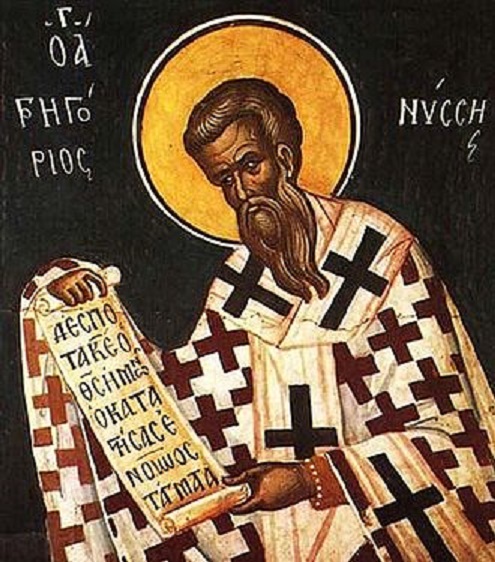Podcast: Play in new window | Download
Subscribe: Spotify | Email | RSS
 According to Orthodox analytic theologian Dr. Beau Branson the right way to understand the Trinity is that the one true God is none other than the Father, although there are three divine persons. There is no triune God, no tripersonal God. In his view, this is the Eastern Orthodox understanding of the Father, Son, and Holy Spirit.
According to Orthodox analytic theologian Dr. Beau Branson the right way to understand the Trinity is that the one true God is none other than the Father, although there are three divine persons. There is no triune God, no tripersonal God. In his view, this is the Eastern Orthodox understanding of the Father, Son, and Holy Spirit.
In this first portion of his presentation “One God, the Father: The Neglected Monarchy of Father and the Analytic Debate about the Trinity“ he disputes my definitions of what “trinitarian” and “unitarian” theologies are. Dr. Branson’s definitions are:
(TB) A Trinitarian Theology says that:
(1) There are exactly three divine “persons” or individuals. Nevertheless,
(2) There is exactly one God.
(So, the persons can’t all = the One God).
(Presumably each one bears some important relation to the one God or has a “claim” to being called “God,” but our definition won’t settle how that works.)
(UB) A Unitarian Theology says that:
(1) There is exactly one divine “person” or individual, and
(2) There is exactly one God.
(Presumably these will just be identical, or at least “numerically one,” but again we won’t rule on that point in our definition.)
In contrast, in “Tertullian the unitarian,” I say,
A ‘trinitarian’ Christian theology says that (1) there is one God (2) which or who in some sense contains or consists of three ‘persons’, namely, the Father, the Son, and the Holy Spirit, (3) who are equally divine, and (4) (1)-(3) are eternally the case.
In contrast, a ‘unitarian’ Christian theology asserts that the (1) there is one God, (2) who is numerically identical with the one Jesus called ‘Father’, (3) and is not numerically identical with anyone else, (4) and (1)-(3) are eternally the case.
Dr. Branson also explains what he calls the doctrine of the monarchy of the Father, which in his view, is a key to correctly understanding the Trinity. He also explain what he calls “egalitarian” or “symmetrical” views on the Trinity, which he contrasts with “monarchical” views.
He has some interesting criticisms of my work on Trinity theories, and in his view, my work is not properly grounded in the historical sources, especially neglecting the Cappadocian Fathers and later Orthodox writers.
Do you accept his definitions or mine or neither, and why?
Links for this episode:
- Dr. Branson’s homepage

- preprint of “Ahistoricity in Analytic Theology“
- Dr. Branson’s slides with the unedited audio are posted here (today’s episode covers his Part 1 and the first portion of his Part 2).
- “Trinity“
- podcast 189 – The unfinished business of the Reformation
- podcast 238 – Dialogue with a Catholic Listener
- podcast 11 – Tertullian the unitarian
- podcast 28 – Interview with Dr. William Hasker about his Metaphysics and the Tripersonal God – Part 2
- podcast 27 – Interview with Dr. William Hasker about his Metaphysics and the Tripersonal God – Part 1
- John Zizioulas
- Dr. John Behr (on the Father as the one God)
- St. Vladimir’s Orthodox Theological Seminary
- Articuli Fidei
- This week’s thinking music is “Thy Resurrection” from Chants of the Russian Orthodox Church 2.


If Unitarians want to claim that God the Father is the only true God then do they mean that the fatherhood of God is an eternal attribute of God or not?
“In contrast, a ‘unitarian’ Christian theology asserts that the (1) there is one God, (2) who is numerically identical with the one Jesus called ‘Father’, (3) and is not numerically identical with anyone else, (4) and (1)-(3) are eternally the case.”
I am not quite sure what is meant here. Does this mean that Jesus and Father are two words for the same entity?
Since he included belief in the Bible there also, I suspect it may be that since he believes the Church gave us the Bible, and since we base our beliefs about God on the Bible, without an Orthodox view of the Bible’s origin from the Church, we have no basis for a biblical belief in God.
The main problem with this ‘the one God is the Father + 2 subsidiary ‘divine’ beings’ theology is not in my view the ontology (although defining ‘divine’ is problematic), but the Christology.
In what sense is Jesus a real human being while also being (the ‘incarnation’ of) one of these ‘divine beings’?
It is, basically, impossible to be both at the same time.
All attempts to explain this result in contradiction, obfuscation or appeals to ‘mystery’.
For instance, did Jesus have a ‘divine’ mind and also a human mind, or just the one mind?
Either option has unacceptable implications.
If two minds, not a real human.
If one mind, this mind remembers being ‘divine’, creating the universe as agent of God the Father, therefore not a real human mind.
I know this is a hobby horse of yours but if Jesus is a “real” human being according to your definition then can he also be a “real” mediator between God and man? I believe not.
Paul,
Whether or not Jesus was qualified to be a “mediator between God and man” would be a matter of appointment to the office (cf. Hebrews 5:2-10) and not question of essence or nature.
Rivers 🙂
is this human mind unitarian like me and you? so this unitarian mind refers to the father as “only true” god , does that mean unitarian mind could only COMPREHEND a unitarian father?
Dr. Branson say’s that the Father is the one true God then cites the Catholic Creed, “true God from true God” in reference to the Son. To Dr. Branson, What does it mean to be God? Or better yet, what does it mean to be divine? Definition of terms I believe will either clarify or lead so self contradiction. You can say emphatically that the true God is ho theos. And that ho theos is the Father. But then he reverts back to Trinitarian concepts. There were times in the talk ( which I have listened to 3 times) when I thought he carried Unitarian concepts and seemed to want the world to know that, the true God was the Father. But then Dr. Branson what is the Son? Is he also God or I should say divine. I could accept divine. Even God, but then you would have to define the meaning of those words or how they were used in the biblical text or even by earlier Church Fathers. I would certainly love to hear definition of those words. Jesus is called theos. But so are the angels. Men are called theos. Again in what sense does Dr. Branson understand theos as used in the Biblical text. What about YHWH. Is Jesus also YHWH? Again you would have to contextually show me in what sense he is YHYH. After all angels were given the name which was within them. Showing in an authoritative way that he represented YHWH.
Also, in the Shema of Isreal, (Deut.6.4) What does it mean to be to be One? YHWH our God is one YHWH.
I have always understood one (ECHAD) as one in Absoluteness, or aseity . There is no One like YHWH.
I really can’t wait to here Dale’s take and hopefully clarification on Dr. Bransons use of biblical terms and how the are understood in his theology
Yes, I agree. Dr. Branson is playing a game of shells with the word “God”. Now it means this, but now it means this other thing, yet without informing the listener that he is switching shells, or God definitions. This is a common problem with Trinitarians. It is similiar to using the word “trinity” and “Trinity”. One is a group of 3, the other is a doctrine. But they believe it is acceptable to equivocate on the meaning without specifying which definition is being used. I don’t think this is done on purpose by those who really haven’t studied the issue (like myself for most of my life). But for a professor like this who is presenting himself as a scholar, it is not excusable.
Sounds a lot like Samuel Clarke to me. With reference to saying that Jesus is “true God of true God” or “God of God, Light of Light” etc. Clarke answered that yes Jesus is God of God and Light of Light; but the Father is God of none…He is simply God in and of Himself, depending on no one. This was his way of saying that Jesus was not the same being as the Father but as separate from Him as I am from my earthly father. However, Jesus uniquely has, because of the Father’s gracious will, all the attributes and qualities of the Father, save self-existence and perhaps knowledge of the hour of His return (depending on how you understand that passage where Jesus states only the Father knows). Anyways, it has seemed for a while that perhaps this is what the Orthodox Church believes in a roundabout way but then when pressed usually say something along the lines of a distinction between the “person” of Jesus being derivative of the Father but the “essence” of Jesus not being derivative. I don’t understand how that solves the problem but perhaps I should study their views more.
Dale,
First, let me say how much I love your website! It has helped me on my journey, and I appreciate it. Dr. Branson’s problem – and that of most Eastern Orthodox theologians – is that they want to say the only God is the Father, but then they create confusion by saying that the Son and the Spirit are also God, but in a derivative sense. And all of this is predicated upon a dubious biblically exegetical conclusion: the Son is a preexistent divine being who dwells with the Father eternally. Based on a careful study of scripture, personal preexistence cannot be established, and hence all of the Orthodox talk about the Trinity is without foundation. Isn’t that part of the problem here? Again, thanks for your good work, and especially your openness to other opinions! It’s refeshing!
Yes Russell, I think you have summed it up well.
Additionally, it is not possible to be both a preexistent divine being and a real human being.
Dale,
Why does he believe that Protestants should jettison their belief in God? That seems like quite the stretch.
Thanks
Good question!
Comments are closed.